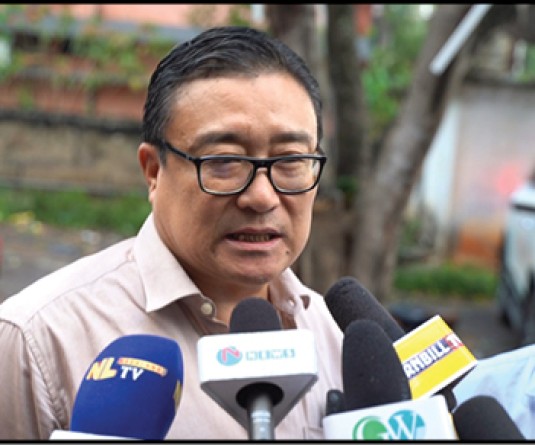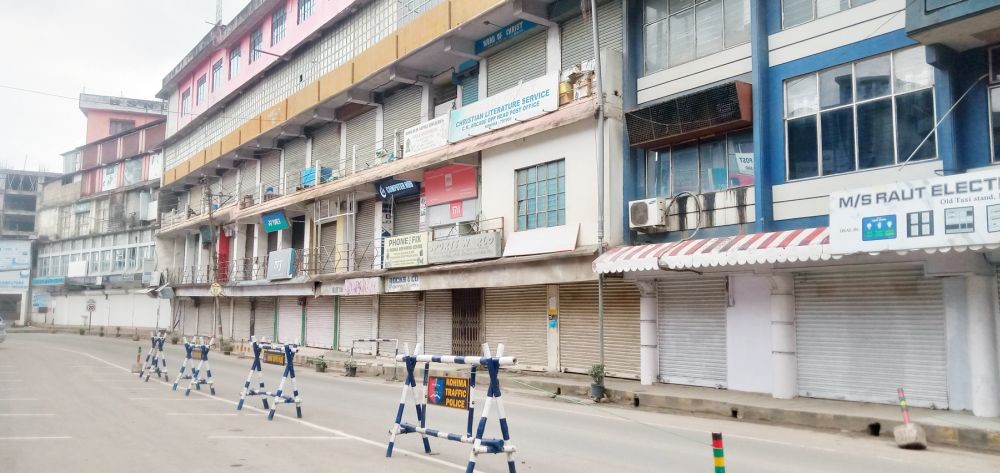
For justice and equality to all Naga students
Our Correspondent
Kohima | March 5
In the backdrop of the State’s failure to meet the demands of the students’ community, the All Nagaland College Students’ Union (ANCSU) on March 5 began its first phase agitation by abstaining classes for two days (March 5 and 7) in all the eleven districts.
On February 17 ANCSU had sent an ultimatum to the Government of Nagaland against the irregularity in the functioning of the Department of Technical Education (DTE) and the discrepancies and loopholes in conduct of exams and distribution of seats for various technical courses by the concerned Department.
In the ultimatum, ANCSU demanded punitive action against the erring officials as per the findings of the State Vigilance Commission report, to initiate process for amalgamation of DTE with Higher Education Department without delay and to allow only the indigenous tribes of Nagaland to appear the technical and allied courses for state reserved quota.
ANSCU president Zhoku Thuluo at a press conference on Saturday informed that the government failed to address their demands despite giving a 15 days ultimatum which expired on March 3. “We will continue this agitation till our rights is restored and justice is done,” Thuluo said.
The representations submitted by ANCSU against the irregularity and anomalies in the DTE are not new. The union had highlighted the procedural lapses in the department in 2014 and 2015 through fact findings.
“Despite the many memorandums, appeals and representations submitted to the State government, no action has been taken so far. We will fight till the end,” Kenivito Christopher Sophi, deputy speaker vowed.
With the beginning of first phase agitation, ANCSU has warned of harsher agitation if the State government fails to address the demands of the students.
State Vigilance Commission report
On June 29, 2015 ANSCU submitted a representation against the anomalies in the Department of Technical Education (DTE) which was further directed by the Chief Secretary to hand over the matter to the State Vigilance Commission.
The report of the investigation, which took 3 months to complete, was submitted to the Chief Secretary on November 5, 2015.
However, out of 30 files that the Vigilance Commission demanded, the DTE could only produce 8 files from 2013 to 2014, according to Viranu Ltu, education secretary, ANSCU while assuming that “If all the files were produced before the commission, more discrepancies would have been unearthed.”
Some of the findings of the Vigilance Commission report include the go-ahead given by the department to 17 students who had already been selected in other allied technical courses to sit for NSPMT in 2014. This violated equal opportunities for other aspiring candidates.
The report also identified the failure of the department to coordinate and communicate with other user department such as viz. forest, sericulture, fishery, horticulture and the failure to maintain basic records of file index register etc. The recommendations put forward by the Vigilance Commission were:
• Recommend the State government to address the problem of poor performance of Naga students in AIPMT exam in all seriousness and examine ways and means to provide quality education at par with other Boards and Universities
• Express displeasure on the technical education department for poor record maintenance, serious procedural lapses in running the department and their inability to coordinate with other user departments.




